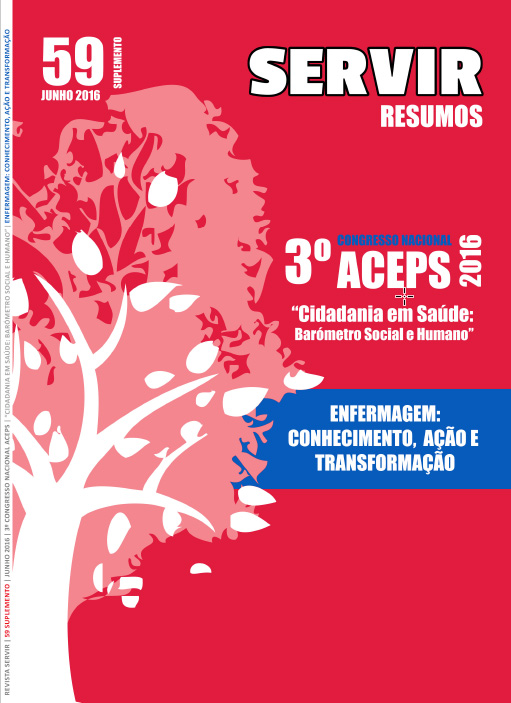Beliefs about medicines and adherence to treatment in hypertensive patients
DOI:
https://doi.org/10.48492/servir0259.23187Palabras clave:
Beliefs about medicines, Adherence to treatment, HypertensionResumen
Introduction
Hypertension (HTA) is the most prevalent risk factor in the portuguese population. As a chronic disease, it needs continued therapy and vigilance in time. It is important not to forget that therapeutic interruption, absolute or intermittent, can be associated to an aggravation of the clinical situation.
The phenomenon of adherence to treatment is a motive of concern by the scientific community, being considered as a global problem of high magnitude. The implications have a huge relevance in the morbidity and mortality and in the significant increase in the consumption of health care and the costs to the health system.
Objective
To evaluate adherence to treatment and relate beliefs about medicines with adherence to treatment.
Methods
This analytical, correlational and cross-sectional study was conducted with 119 patients with medical diagnosis of HTA for at least one year.
Data collection was performed through a self-administered questionnaire (sociodemographic characterization, Measure Adherence to Treatment, Beliefs about Medicines) to the patients who were at the time attending primary health care consultations.
The research protocol was evaluated and approved by the Ethics Committee. Statistical analysis was performed through the SPSS program version 20.0, using parametric and non-parametric tests, depending if the study variables had or not a normal distribution.
Results
Patients had an average age of 64,2±11,1 years; 54,6% were male; 81,50% were "married"; 66,4% had education up to the “4th grade”; 63% lived in a “village”; 50,2% were retired, 48,7% had an income below “one minimum wage” and 10,9% reported to “have some economic difficulties”. Clinically, 23,5% of the hypertensive patients had uncontrolled blood pressure (≥140/90 mmHg).
The prevalence of adherence to treatment of the hypertensive patient was 51,3%. The strong belief in the specific needs of the prescribed medication proved to be a predictor in the adherence to medication.
Conclusions
The results are consistent with previous studies, in which individuals with higher beliefs in the specific needs of the prescribed medication recorded a higher adherence to medication rate.
Descargas
Descargas
Publicado
Cómo citar
Número
Sección
Licencia
No intuito de promover a livre circulação do conhecimento, a Servir funciona em regime de acesso livre (open access). Todo o seu conteúdo está disponível e protegido sob a licença Creative Commons (CC BY 4.0).
A revista permite o auto-arquivo em repositórios institucionais de todas as versões, podendo ficar imediatamente disponíveis.


